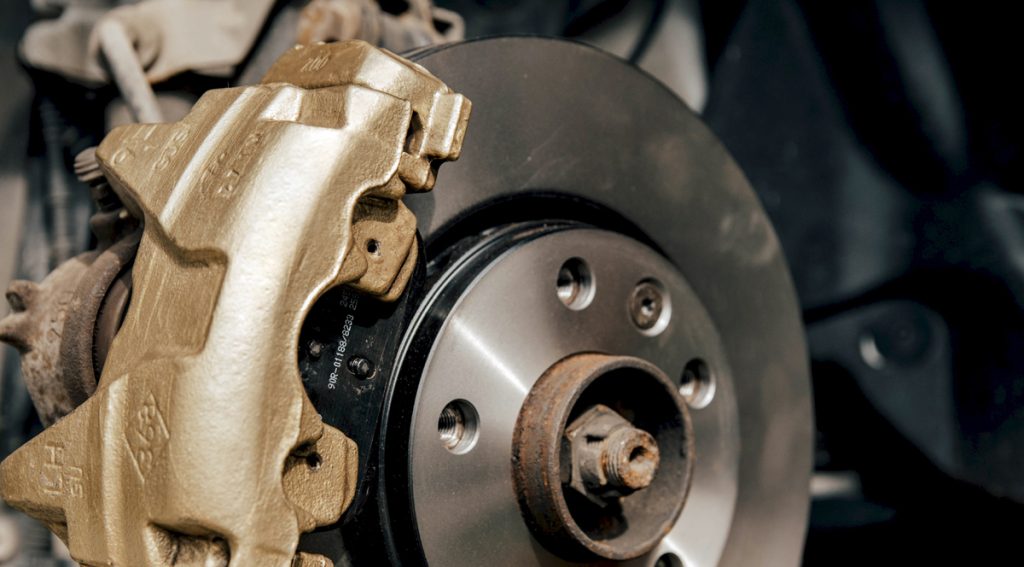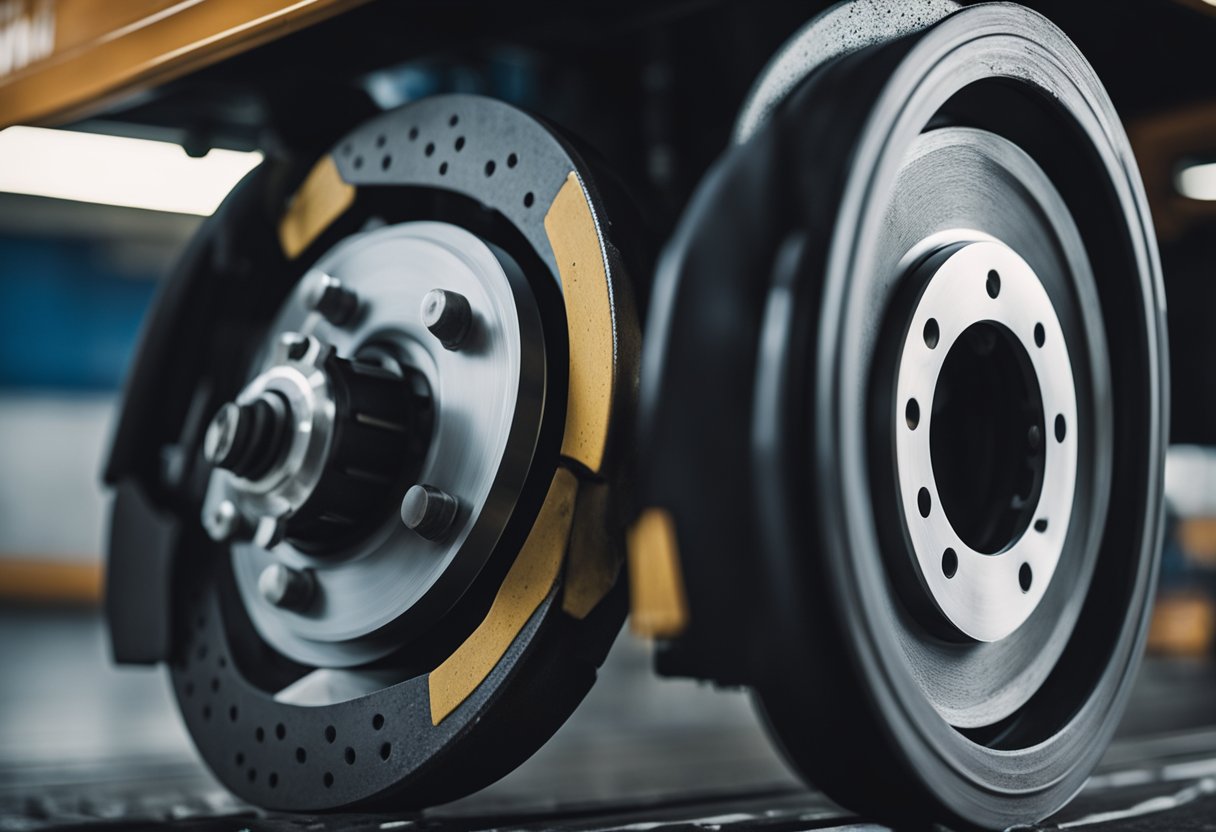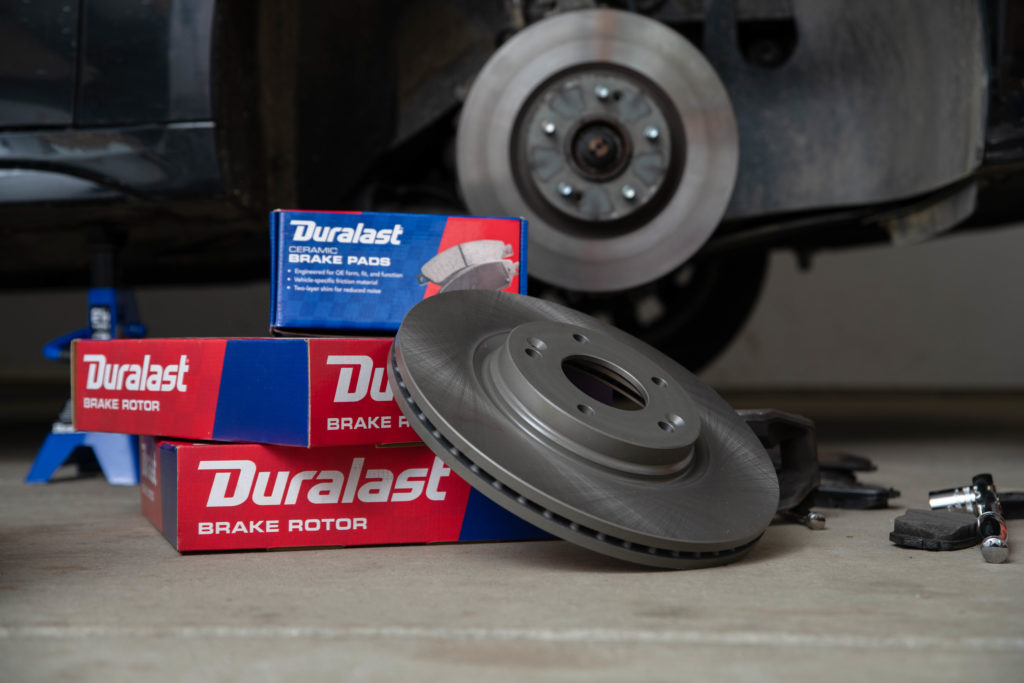Have A Tips About What Brakes Last The Longest

How Long Do Car Brakes Last? University Auto Repair Flagstaff
Unlocking the Secrets of Brake Pad Longevity
1. What Determines Brake Life Anyway?
Ever wonder why your neighbor's brake pads seem to last longer than a presidential term, while yours are squealing for mercy after a year? It's not just luck! Several factors play a significant role in determining how long your brakes will stick around. Think of it as a recipe for brake pad longevity, where the ingredients are driving habits, brake pad material, vehicle type, and even the environment you drive in. Get the mix right, and you'll be enjoying quiet, reliable braking for years to come. Get it wrong, and you might be making frequent trips to your mechanic.
Aggressive driving, for example, is a brake pad's worst nightmare. Constantly slamming on the brakes, tailgating, and generally treating your car like a race car will drastically reduce their lifespan. On the other hand, a more gentle, anticipatory driving style allows you to coast to stops more often, saving your brakes from excessive wear and tear. It's like the difference between marathon running and sprinting; one requires sustained effort, while the other is a burst of energy that quickly depletes.
The type of brake pad material also matters. Ceramic brake pads are known for their longevity and quiet operation, while semi-metallic pads offer excellent stopping power but tend to wear down faster. Organic pads are typically the least expensive, but they also have the shortest lifespan. Think of it like choosing between different types of shoes: some are designed for comfort and durability, while others are built for performance, even if that means sacrificing some longevity.
Finally, your vehicle type and driving environment play a role. A heavy SUV will naturally put more stress on its brakes than a lightweight sedan. Similarly, driving in stop-and-go traffic or on hilly terrain will accelerate brake wear compared to driving mostly on flat highways. It's all about the demands placed on the braking system; the more demand, the shorter the lifespan. So, if you're constantly hauling heavy loads or navigating challenging terrain, don't be surprised if your brakes wear out sooner than expected.

Decoding Brake Pad Materials
2. The Material World of Brakes
Alright, let's dive into the fascinating world of brake pad materials! As mentioned earlier, the material composition of your brake pads significantly impacts their lifespan. It's like choosing the right tool for the job; each material has its own strengths and weaknesses when it comes to stopping power, noise, and longevity. Understanding these differences can help you make an informed decision when it's time for a brake replacement. So, buckle up and prepare for a crash course in brake pad chemistry!
Ceramic brake pads are often touted as the kings of longevity. They're made from a blend of ceramic fibers, binding agents, and small amounts of metal. This composition gives them excellent wear resistance, meaning they can withstand a lot of friction before needing replacement. They also produce very little brake dust and are known for their quiet operation. However, they tend to be more expensive than other types of brake pads. Think of them as the luxury car of brake pads: smooth, quiet, and built to last, but with a premium price tag.
Semi-metallic brake pads, on the other hand, are a more budget-friendly option. They're made from a mixture of metal fibers, friction modifiers, and binding agents. This composition gives them excellent stopping power, especially in high-performance situations. However, they tend to wear down faster than ceramic pads and can produce more brake dust. They can also be noisier, especially in cold weather. They are the sports car version: built for performance and agility, and they are cheaper and the longevity isn't as great.
Organic brake pads, also known as non-asbestos organic (NAO) pads, are made from a blend of organic materials like rubber, glass, and Kevlar. They're typically the least expensive type of brake pad, but they also have the shortest lifespan. They're quiet and produce minimal brake dust, but they're not as effective at stopping as ceramic or semi-metallic pads, especially in wet conditions. Imagine these as the bicycle of brake pads: quiet and eco-friendly, but not the best choice for serious performance or durability.
![How Long Do Tesla Brakes Last? [Models And Maintenance] How Long Do Tesla Brakes Last? [Models And Maintenance]](https://brakeshub.com/wp-content/uploads/2022/08/HOW-LONG-DO-TESLA-BRAKES-LAST.jpg)
Driving Habits and Brake Wear
3. Driving Styles Matter!
Okay, let's get real about driving habits. You might have the fanciest, most durable brake pads on the market, but if you drive like you're auditioning for a Fast & Furious movie, they're not going to last very long. Your driving style has a HUGE impact on brake wear. It's like the difference between gently sipping a cup of coffee and chugging it down in one gulp; one is a relaxed and enjoyable experience, while the other is a recipe for heartburn and a caffeine crash.
Aggressive driving — hard braking, rapid acceleration, and frequent lane changes — puts a tremendous amount of stress on your brakes. Every time you slam on the brakes, you're essentially grinding away at the brake pad material. The more often you do it, the faster your pads will wear down. Think of it like repeatedly scratching a piece of sandpaper; eventually, it will wear out and lose its effectiveness.
Defensive driving, on the other hand, is much kinder to your brakes. By anticipating traffic flow, maintaining a safe following distance, and coasting to stops whenever possible, you can significantly reduce brake wear. It's like carefully nursing a glass of fine wine; you savor each sip and appreciate the experience, rather than rushing through it. Defensive driving not only saves your brakes but also improves fuel economy and reduces your risk of accidents. It's a win-win-win situation!
Consider taking a defensive driving course to learn techniques for safer and more efficient driving. These courses often cover topics like hazard awareness, space management, and smooth braking techniques. You might even be surprised at how much you can improve your driving skills. Think of it as a tune-up for your driving habits; it can make you a safer, more fuel-efficient, and brake-friendly driver. And your wallet will thank you for it!

How Long Do Brake Pads Last? Lifespan On New & Used Cars
The Vehicle Factor
4. Heavier Vehicles = Harder Work
Let's talk about vehicle weight. A tiny sports car will naturally have less wear on the brakes than a big heavy pickup truck. It's all about physics — the heavier the vehicle, the more force is required to bring it to a stop. Think of it like trying to stop a runaway shopping cart versus stopping a runaway train; one requires minimal effort, while the other requires a massive amount of force.
SUVs, trucks, and vans typically have shorter brake lifespans than smaller, lighter cars. This is simply because they have more mass to slow down. If you frequently haul heavy loads or tow trailers, your brakes will wear out even faster. It's like asking a weightlifter to repeatedly lift their maximum weight; eventually, they'll get tired and need a break.
If you own a heavy vehicle, it's even more important to practice good driving habits. Avoid aggressive braking, maintain a safe following distance, and regularly inspect your brakes. You might also consider upgrading to high-performance brake pads that are designed to withstand the extra stress. It's like giving your weightlifter some extra protein and a good night's sleep; it helps them perform better and recover faster.
Keep up with the manufacturer's recommended maintenance schedule for your vehicle. This includes regular brake inspections and fluid flushes. Proper maintenance can help extend the life of your brakes and prevent costly repairs down the road. Think of it like taking your car to the doctor for regular checkups; it helps identify potential problems early and keep your car running smoothly.

How Long Do Car Brakes Last? Darien, CT
Environmental Factors
5. Where You Drive Matters
Believe it or not, where you drive can also impact brake life. Coastal areas with salty air and northern regions that use road salt in the winter can accelerate brake wear due to rust and corrosion. It's like leaving a metal tool outside in the rain; eventually, it will rust and become unusable.
Road salt is particularly corrosive to brake components. It can cause rust to form on brake rotors, calipers, and brake lines, which can reduce their effectiveness and lifespan. If you live in an area that uses road salt, it's important to wash your car regularly, especially during the winter months. This can help remove salt and other contaminants from your car's undercarriage. It's similar to washing your hands after working in the garden; it helps remove dirt and prevent skin irritation.
Consider applying a rust inhibitor to your brake components to help protect them from corrosion. There are several products available that can be sprayed onto your brakes to create a protective barrier. It's like applying sunscreen to your skin before going outside; it helps protect you from harmful UV rays.
Parking your car in a garage can also help protect it from the elements. A garage can shield your car from rain, snow, and salt, which can help prevent rust and corrosion. Think of it as giving your car a cozy little home where it can relax and be protected from the harsh elements. It can help extend its lifespan and keep it looking its best.

How Long Do Brake Rotors Last? AutoZone
FAQ
6. Brake FAQs
Still have questions about brake life? Don't worry, you're not alone! Here are some frequently asked questions to help clear up any confusion:
Q: How often should I replace my brake pads?
A: There's no one-size-fits-all answer to this question. It depends on your driving habits, the type of brake pads you have, and the type of vehicle you drive. As a general rule, you should have your brakes inspected every 6 months or 6,000 miles. Most brake pads need to be replaced every 25,000 to 70,000 miles.
Q: What are the signs that my brake pads need replacing?
A: Some common signs include squealing or grinding noises when you brake, a pulsating brake pedal, and a longer stopping distance. If you notice any of these symptoms, it's important to have your brakes inspected by a qualified mechanic as soon as possible.
Q: Are ceramic brake pads worth the extra money?
A: Ceramic brake pads are generally more expensive than semi-metallic or organic pads, but they offer several advantages, including longer lifespan, quieter operation, and less brake dust. If you're looking for the best possible performance and longevity, ceramic pads are a good choice.
Q: Can I replace my own brake pads?
A: Replacing brake pads is a relatively straightforward process, but it requires some mechanical knowledge and the right tools. If you're not comfortable working on your car, it's best to leave it to a professional.